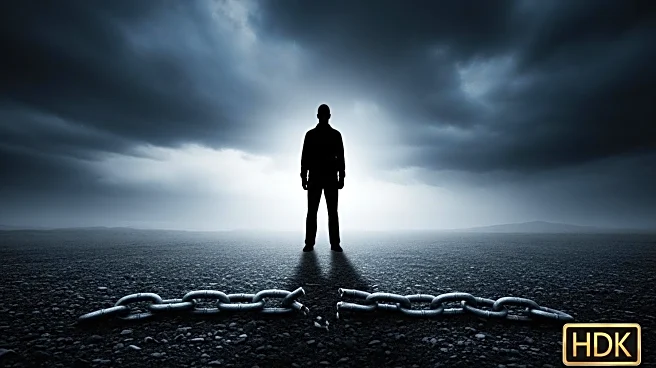What is the story about?
What's Happening?
Zohran Mamdani, a Democratic mayoral candidate in New York City, is facing criticism after a photo surfaced showing him with Rebecca Kadaga, a prominent Ugandan politician known for her support of harsh anti-LGBT policies. The photo was taken during Mamdani's visit to Uganda for his wedding celebration. Kadaga has been instrumental in pushing legislation that imposes severe penalties on LGBT individuals, including life imprisonment. Mamdani's campaign has stated that he was unaware of Kadaga's controversial stance on LGBT issues at the time the photo was taken. The campaign emphasized Mamdani's commitment to universal human rights and his plans to protect LGBTQ+ individuals in New York City.
Why It's Important?
The controversy surrounding Mamdani's photo with Kadaga highlights the complexities of international relations and the impact of personal associations on political campaigns. As Mamdani is a frontrunner in the mayoral race, this incident could influence voter perceptions and affect his chances in the upcoming election. The situation underscores the importance of political figures being aware of the backgrounds and policies of individuals they associate with, especially when those policies conflict with their own stated values. The backlash also reflects broader societal debates on LGBT rights and the responsibilities of public figures to advocate for marginalized communities.
What's Next?
Mamdani's campaign is likely to focus on damage control, emphasizing his commitment to LGBTQ+ rights and distancing himself from Kadaga's policies. As the general election approaches, Mamdani will need to address voter concerns and reinforce his stance on human rights issues. The incident may prompt further scrutiny of Mamdani's international connections and their implications for his political platform. Additionally, Mamdani's opponents in the mayoral race may use this controversy to challenge his credibility and question his judgment.
Beyond the Headlines
The incident raises questions about the ethical responsibilities of political candidates when engaging with international figures. It also highlights the potential influence of cultural heritage and family ties on political narratives. Mamdani's Ugandan roots and connections may be seen as a bridge between East African heritage and Western politics, but they also risk exposing contradictions in his political ethos. This situation could lead to broader discussions on the role of diaspora engagement in shaping political identities and policies.















